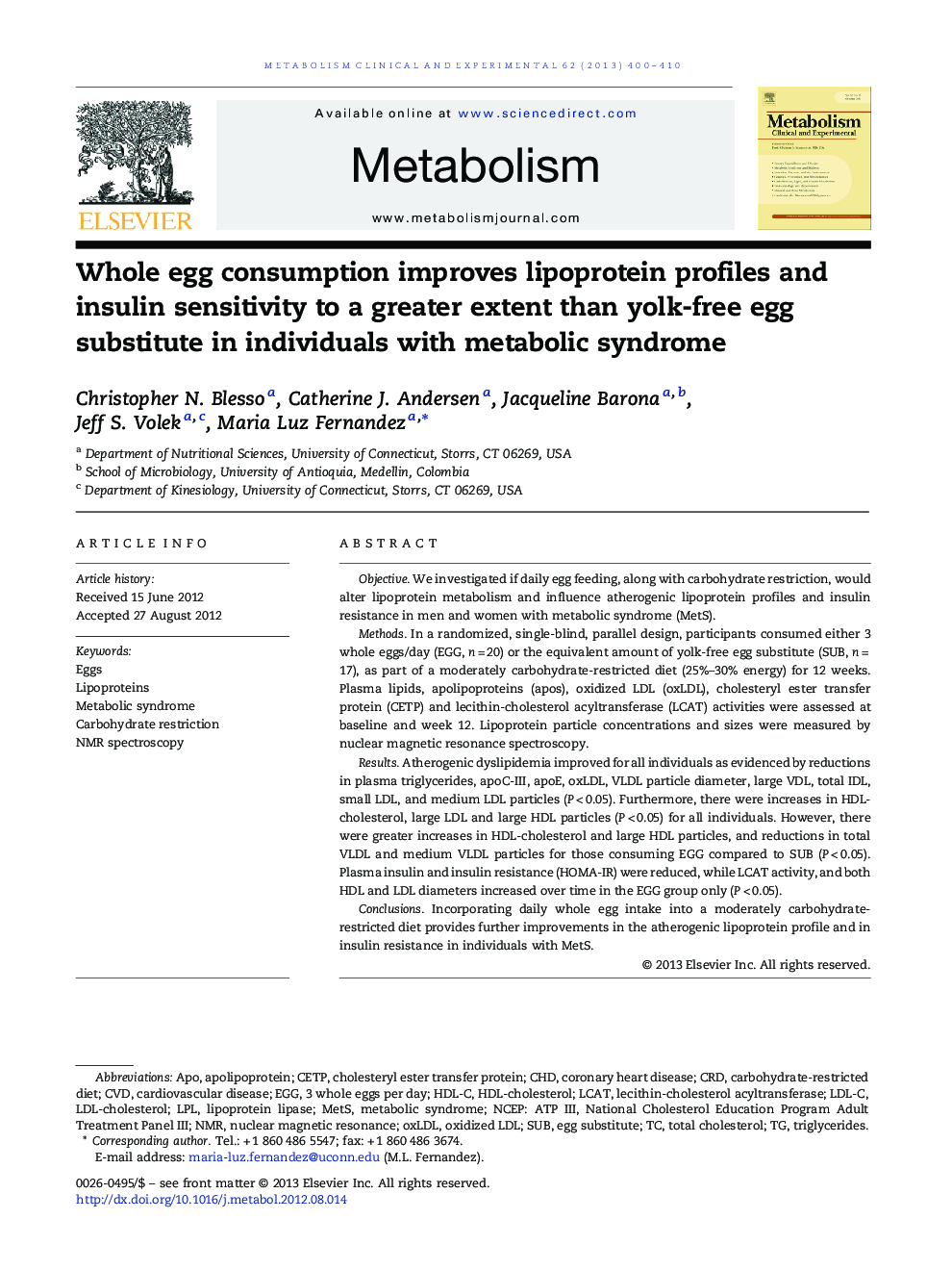| Article ID | Journal | Published Year | Pages | File Type |
|---|---|---|---|---|
| 2805675 | Metabolism | 2013 | 11 Pages |
ObjectiveWe investigated if daily egg feeding, along with carbohydrate restriction, would alter lipoprotein metabolism and influence atherogenic lipoprotein profiles and insulin resistance in men and women with metabolic syndrome (MetS).MethodsIn a randomized, single-blind, parallel design, participants consumed either 3 whole eggs/day (EGG, n = 20) or the equivalent amount of yolk-free egg substitute (SUB, n = 17), as part of a moderately carbohydrate-restricted diet (25%–30% energy) for 12 weeks. Plasma lipids, apolipoproteins (apos), oxidized LDL (oxLDL), cholesteryl ester transfer protein (CETP) and lecithin-cholesterol acyltransferase (LCAT) activities were assessed at baseline and week 12. Lipoprotein particle concentrations and sizes were measured by nuclear magnetic resonance spectroscopy.ResultsAtherogenic dyslipidemia improved for all individuals as evidenced by reductions in plasma triglycerides, apoC-III, apoE, oxLDL, VLDL particle diameter, large VDL, total IDL, small LDL, and medium LDL particles (P < 0.05). Furthermore, there were increases in HDL-cholesterol, large LDL and large HDL particles (P < 0.05) for all individuals. However, there were greater increases in HDL-cholesterol and large HDL particles, and reductions in total VLDL and medium VLDL particles for those consuming EGG compared to SUB (P < 0.05). Plasma insulin and insulin resistance (HOMA-IR) were reduced, while LCAT activity, and both HDL and LDL diameters increased over time in the EGG group only (P < 0.05).ConclusionsIncorporating daily whole egg intake into a moderately carbohydrate-restricted diet provides further improvements in the atherogenic lipoprotein profile and in insulin resistance in individuals with MetS.
